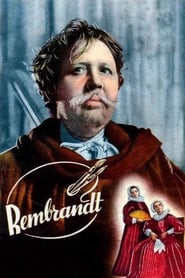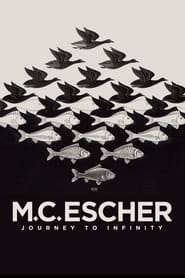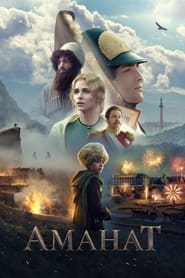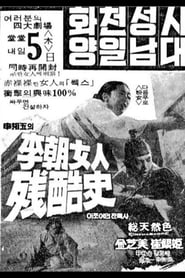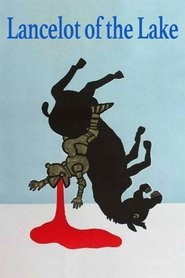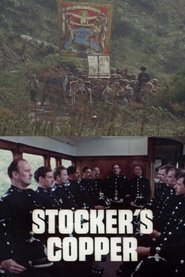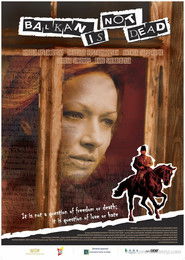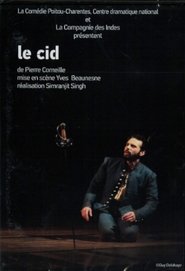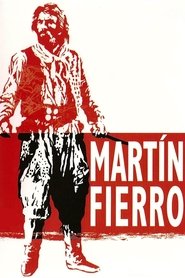Popular History Movies on Tub Tv - Page 167
-
20 Duels of Young Shingo - Conclusion
1963
While on his journey through the countryside of Japan, Shingo encounters many people whose lives have been affected by his actions. Though the many duels he fought were intended to bring justice to those who sought to do evil, he is faced with the knowledge that his victories have also caused suffering amont the family members of his victims-leading him to question his life's philosophy. This superb film is the final chapter in this part of Shingo's story. A fitting tribute to his quest to be the supreme swordsman. -
Rembrandt
1936
Rembrandt
1936
star 6.8A character study depicting the life of Rembrandt Van Rijn at the height of his fame in the mid 1600s. Beginning with the death of his wife, Rembrandt's work takes a dark turn, which offends many of his patrons. -
Amorous Pancho Villa
2013
Amorous Pancho Villa
2013
star 5The assassination of Pancho Villa, on the outskirts of Parral, Chihuahua, plunged the city into mourning, and a wake for the revolutionary hero was held by his closest collaborators. Conspicuous among the mourners were the four women with whom Villa was having intimate relationships at the time of his death. Now that Villa is no longer around to mediate and keep them apart, tensions between the women grow and intensify, with unexpected consequences. An intimate and human portrait of the Centaur of the North. -
Cafe Moscow
1936
Cafe Moscow
1936
About a man's disappointment in love, and this provides the foundation for the upcoming trial of a much more significant love. The scene of the fatal meeting, the bar, which is a kind of world-model, and its environment: a fort under siege, from where it's almost impossible to escape... -
The Day Before
1939
The Day Before
1939
A forceful indictment of the devastating effects of war and nationalistic fanaticism on the average man, who, in the face of the absurdity of violence, is reduced to apathy or victimhood. -
Wizja lokalna 1901
1981
Wizja lokalna 1901
1981
star 5.5More documentary in its approach than dramatized history, this is a compelling story about a 1901 children's strike in Wrzesnia near the Polish border with Prussia. Poland was partitioned at this time, and a rigidly patriotic Prussian teacher in Wrzesnia follows the dictates of the Germans in parliament and insists that the children be taught their religion classes in German. When the children refuse to take part in the classes, they are supported by the local priest, but that does not save them from being beaten. They are also kept after school and tormented in other ways as well. Newspapers, parents, and the nation as a whole get involved, transforming a simple children's strike into a national incident. -
M. C. Escher: Journey to Infinity
2018
star 6.9A portrait of the visionary Dutch artist M. C. Escher (1898-1972), according to his own words, taken from his diary, his correspondence and the texts of his lectures. -
Amanat
2022
Amanat
2022
star 7The love story of the son of Imam Shamil Jamalutdin and Lisa Olenina against the backdrop of the dramatic events of the military history of Russia in the first half of the 19th century. Jamalutdin went down in history as a "great hostage", and the film is an attempt to answer the question: a hostage of big politics or big love. The historical context of the decline of the Nikolaev era, against which the story of love and betrayal, honor and duty, service to the motherland and loyalty to this word unfolds, will become the key to the film. -
Oyari Haishaku
2013
Oyari Haishaku
2013
Kotoji Akame (Naoto Takenaka) is a shabby, middle aged low-ranking samurai of small stature. One day, in a drinking contest, he misses sending his lord off as he leaves Edo for Kuju. Released from service for this blunder, Akame becomes a wandering samurai. He goes on to steal lances from many feudal lords' processions. For Furuta, suffering defeat is out of question. To protect his domain and family, he takes it on himself to meet Murase and proposes an alliance between the Wako, Fuki and Ushizu domains. With the fate of the feudal families in their hands, Furuta and Murase pursue Akame. Each with something to protect, the men fight desperately over the lances. -
The Woman Gambler's Supplication
1968
Eleventh film in the long-running series Daiei Studio's Woman Gambler with Kyoko Enami starring where she plays the woman gambler Ogin. -
The Flight
1971
The Flight
1971
star 5.6The film is about a group of people who in other times wouldn't have anything in common, some of them innocent bystanders, some moral criminals. But nothing is straightforward and simple. From Russia "the run" continues to Constantinople, to Paris, back to Russia. Some of them have understood that they can't live outside Russia and go back maybe to be happy, maybe not, some go back to face sure death for their crimes, some don't go back and know that are going to miss homeland forever, some are comfortably well off (are they?) in exile. Sentimental without syrup, tragic and comical at the same time. -
The Coders
1991
-
Women of Yi-Dynasty
1969
Women of Yi-Dynasty
1969
Four short stories examing the lives of women in the last 18th and 19th century Story 1: 'Wives Should Be Submissive'--A father tries to marry his daughter into a wealthy family. Story 2: 'A Daughter-In-Law Is No Better Than A Stranger'--A woman thinks that her daughter-in-law has turned her son against her so she tries to kill the younger woman. Story 3: '7 Grounds For Divorce'--A wife begins an affair with her servant because of her husband's impotency Story 4: 'Prohibit Sex In Court'--A concubine's life is at risk when it is revealed that her infant child is not the king's. -
Lancelot of the Lake
1974
Lancelot of the Lake
1974
star 6.2Having failed in their quest for the Holy Grail, the knights of the Round Table return to Camelot, their number reduced to a mere handful. Seeing a rift developing between Lancelot and Mordred, Arthur urges his knights to bury their differences and become friends. However, the king is unaware that Lancelot is having an affair with his queen, Guinevere. Lancelot is torn between his duty to his king and his love for the queen, whilst Mordred is determined to use his infidelity to destroy him. -
Detective Hibari: Case of the Golden Hairpins
1958
star 5Oshichi, a famous girl detective, takes it upon herself to investigate the murder of a woman which occurs during an event for the festival of Asakusa Shrine. Her investigation leads her into danger as she runs afoul of a high ranking official and his plans to find a hidden treasure. -
Assassin's Target: Iemitsu
1995
A vicious plot that would change the course of Japanese history is set in motion when assassins conspire to kill Iemitsu, the third shogun of the Tokugawa dynasty. Things heats up as Iemitsu plans a journey across Japan where assassins lie in wait. Working with elder statesman Okubo Hikozaemon is Musashi Miyamoto who wants to unravel the mystery of who is behind this plot and things heat up further when some of them are the greatest swordsmen in the land! -
Stocker's Copper
1972
Stocker's Copper
1972
In August 1913 a strike at a Cornish clay pit leads to Welsh police being sent to keep order. Having no other source of income, a striking miner is forced to take in one of the policemen as a lodger. They soon become friends, but escalating tension at the mine means that conflict will become inevitable. -
Balkan Is Not Dead
2013
Balkan Is Not Dead
2013
star 7.3A Macedonian family from Bitola at the turn of the twentieth century tries to survive, preserve its roots and remain together. -
Le Cid
2021
-
Martín Fierro
1968
Martín Fierro
1968
star 5.4The story of rebel gaucho Martin Fierro, his people, and their life in the Argentine Pampas. Based on José Hernández's epic poem.
 Netflix
Netflix
 Amazon Prime Video
Amazon Prime Video
 Apple iTunes
Apple iTunes
 Apple TV Plus
Apple TV Plus
 Disney Plus
Disney Plus
 Google Play Movies
Google Play Movies
 Paramount Plus
Paramount Plus
 Hulu
Hulu
 HBO Max
HBO Max
 YouTube
YouTube
 fuboTV
fuboTV
 Peacock
Peacock
 Peacock Premium
Peacock Premium
 Amazon Video
Amazon Video
 The Roku Channel
The Roku Channel
 AMC+
AMC+
 Kocowa
Kocowa
 Hoopla
Hoopla
 The CW
The CW
 Vudu
Vudu
 Starz
Starz
 Showtime
Showtime
 PBS
PBS
 Pantaflix
Pantaflix
 FXNow
FXNow
 Tubi TV
Tubi TV
 Kanopy
Kanopy
 Comedy Central
Comedy Central
 Crunchyroll
Crunchyroll
 Microsoft Store
Microsoft Store
 Redbox
Redbox
 Sun Nxt
Sun Nxt
 ABC
ABC
 DIRECTV
DIRECTV
 Crackle
Crackle
 Fandor
Fandor
 Plex
Plex

